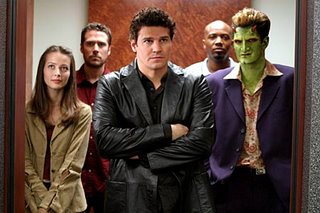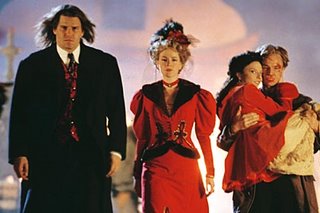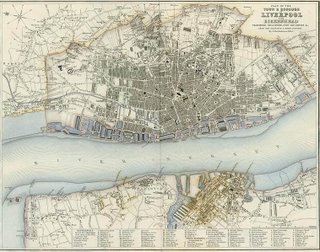Last time we looked at the battle of Cannae in which Hannibal decisively defeated a Roman force of far greater size than his own. Although Hannibal began to get some defections of city-states from the south of Italy (his plan was to break up the Roman hegemony in Italy) and Phillip V of Macedon signed a treaty with Carthage, the war was far from decided.
The city states that had defected were not vital. The core of the Roman power base over the various ethnic groups that composed the Italian peninsula was still intact.
In part this attests to the fighting spirit and indomitable will of the Roman people. Having killed over 125,000 Roman soldiers in two years, Hannibal probably expected peace offers to begin coming from politicians. Hannibal could not even receive ransom for Roman prisoners, even those of noble birth.
Though bloody, the Romans remained unbowed.
That said, the Romans did adopt a new strategy in their dealings with Hannibal. And by new, I mean old. In
Part 3 we discussed how unpopular the policy of Dictator Fabius Maximus was with the Senate. In brief his plan was shadow the Carthaginians, harrass them while avoiding contact with the powerful army.
Following Cannae this policy, which had succeeded in preventing Hannibal from inflicting any serious damage was adopted once again. The Romans were finally willing to put their pride aside and recognize that patience was the greatest weapon in their arsenal when faced with an army in desperate need of supply so far from home.
Having beaten the Romans three times on their own soil, Hannibal would never again be challenged there.
However, any hopes that Hannibal's mercenary army would vanish out from under him, defecting into the night from a lack of food or the sheer lonliness of missing their loved ones, or rise up and mutiny in the face of a lack of promised payment, proved a severe test to the new Roman patience.
Hannibal, loved by his men, kept his forces together and supplied for a further
13 years in Italy.
But to the Fabian policy, a new tactic was added. While Hannibal was kept in check in Italy, Roman armies went out into Punic-controlled Spain, destroying Carthaginian holdings in an attempt to remove all possible support or reinforcement from reaching Hannibal.
Carthaginian island holdings in the Mediterranean, especially Sicily were also attacked. In other words, in the face of a (for the moment) unbeatable army led by Hannibal, the Romans adapted and began to employ what a modern tactician would recognize as a theater-wide assault on the entire Carthaginian infrastructure.
The slow, patient chipping away of Carthaginian holdings throughout Europe and the Mediterranean would have been recognizable to the authors of the European bombing campaigns in WWII.
The commander of the Carthaginian forces in Spain was Hannibal's brother, Hasdrubal Barca. Despite commanding his forces ably he was slowly pushed back. He lost Saguntum, then Capua and then Syracuse.
Let's take an aside here to point out that capturing Syracuse was the result of a two-year seige made famous by the defensive seige engines designed by the brilliant mathmatician Archimedes. Roman strategists considered capturing this genius one of their ket strategic goals when they took the city but he was tragically killed as the city was taken.
Although he won many victories, Hasdrubal was slowly losing ground to the Romans. During one of his victories, he killed both the Roman commanders on the ground, Publius and Gnaeus Scipio.
Although he was too young to technically be placed in command of a Roman army, Publius Scipio's son and namesake was given command of the Roman armies in Spain after vowing to avenge his father.
Scipio proved an excellent commander as well as one who was not afraid to engage the enemy. His first target in Spain was the Carthaginian capital, Carthago Nova, a well-defended seaport in the south of Spain that is today known as Cartagena. Upon losing his main port and most powerful city (indeed Carthago Nova was one of the richest cities in the entire world) Hasdrubal realized he was beaten in Spain. He attempted to cross the Alps as his brother had, hoping to link up with Hannibal.
He no doubt hoped that the two armies together could accomplish what neither had been able to do seperately. But the Romans were charged with preventing any reinforcement from reaching Hannibal and had units stationed to block the route through the Alps Hannibal had used.
When Hasdrubal's battered, exhausted army descended from the Alps, two fresh Roman legions were camped and waiting. They descended on the Carthaginian army and destroyed it, killing Hasdrubal in the process.
Cut off in Italy, the first word Hannibal had of all these events, the mounting losses in Spain, his brother's crossing of the Alps and his brother's death came when a Roman horseman flung Hasdrubal's head into his camp.
The last Carthaginian forces in Spain were defeated in 206 BCE and in 205 Scipio was elected Consul, once again despite being too young.
Scipio presented a bold plan to the Senate for ending the long and bloody war: he would cross the Mediterranean and attack Carthage itself. When the Senate rejected this plan, Scipio went to the Roman assemblies, those bodies that directly represented the people of the Republic to again press his plan.
He was given command of two Legions and managed to raise a further 7,000 volunteers.
He departed for Carthage, landing only 20 miles from the city. His first act upon arriving in North Africa was to make an offer to an outcast Numidian clan. You will recall the Numidians were Hannibals fine light cavalry mercenaries from North Africa.
With this force, reinforced by its own Numidian light cavalry now, the leaders of Carthage recalled Hannibal from Italy to defend their capital.
But not all of Hannibal's army would accompany him. His Gallic and Spanish forces, far from home, with their families living under the Roman yoke refused to accompany him. They had been away for more than 15 years already and had been raised under condition that they would only serve in the mainland.
Scipio's attack on Carthage, pressing the issue, succeeded brilliantly before the battle was even joined. Hannibal's army finally scattered and left Italy in peace.
Two-thirds remaining in Europe where the Gauls and Spaniards dispersed in Roman held territories, returning home to the families and clans and villages that needed them.
The remaining third of Hannibal's army sailed home, where fate waited both generals, Hannibal the enemy of Rome and Scipio its new rising military star at the Battle of Zama.
to be continued...



